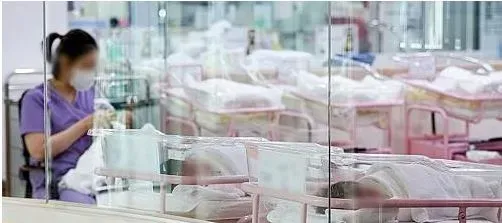South Korea Plans to Boost Paternal Leave Amidst Declining Birth Rates

Seoul, Dec 3 (NationPress) The presidential committee on population policy in South Korea revealed on Tuesday that it aims to have up to 70 percent of fathers utilizing parental leave by the year 2030. This initiative is part of the government's intensified actions to confront the nation's urgent demographic challenges.
This target represents a significant rise from the mere 6.8 percent of fathers who took parental leave in 2022, as reported by the Presidential Committee on Ageing Society and Population Policy.
In the same year, the percentage of mothers taking parental leave was recorded at 70 percent.
The figures indicate the ratio of employees eligible for parental leave who have children aged eight or younger.
This recent announcement coincides with forthcoming modifications to the parental leave policy, effective next year.
At present, both mothers and fathers can take up to one year of parental leave, which is permitted to be divided into three separate periods.
Starting in February, if both parents utilize a minimum of three months of leave, they can extend each parent's total leave duration to 18 months, which can be partitioned into four segments.
Additionally, the maximum compensation for parents on leave will increase to 2.5 million won ($1,782) per month from the current 1.5 million won for the first three months of their leave.
The monthly compensation will be progressively lowered to 2 million won for the subsequent three months, followed by 1.6 million won for the next six months. The specific amounts will vary based on workers' regular salaries.
The government also aims to reduce the percentage of women facing career interruptions due to childbirth to 10 percent by 2030, a decrease from the 22.3 percent recorded this year.
The series of measures introduced by the government aims to combat the country's chronic demographic issues, including having the world's lowest birth rate.
The committee noted that as of November, the government has already made progress on 143 out of 151 related initiatives.
The total fertility rate, which indicates the average number of expected births per woman over her lifetime, was recorded at 0.76 in the third quarter—far below the 2.1 births per woman needed to maintain a stable population without immigration.
The government has set a goal to elevate the fertility rate to 1 by 2030.
"We have formulated a variety of policies, which include offering short-term parental leave, increasing the cap on monthly subsidies, and enabling men to take leave during their spouses' pregnancy," stated a committee representative.
Plans are also in place to provide fertility tests for 210,000 people by 2027, an increase from 80,000 in 2022.
Moreover, the committee announced measures to support premature infants, with plans to establish two new emergency centers for treating critically ill mothers and newborns next year.
Premature infants are defined as those born before 37 weeks of gestation or weighing less than 2.5 kilograms. Approximately 28,000 babies were born prematurely in 2023, accounting for over 10 percent of newborns, as per government statistics.
The country will also implement a round-the-clock transport support system to ensure timely medical attention for mothers and babies in critical conditions, as noted by the committee.










